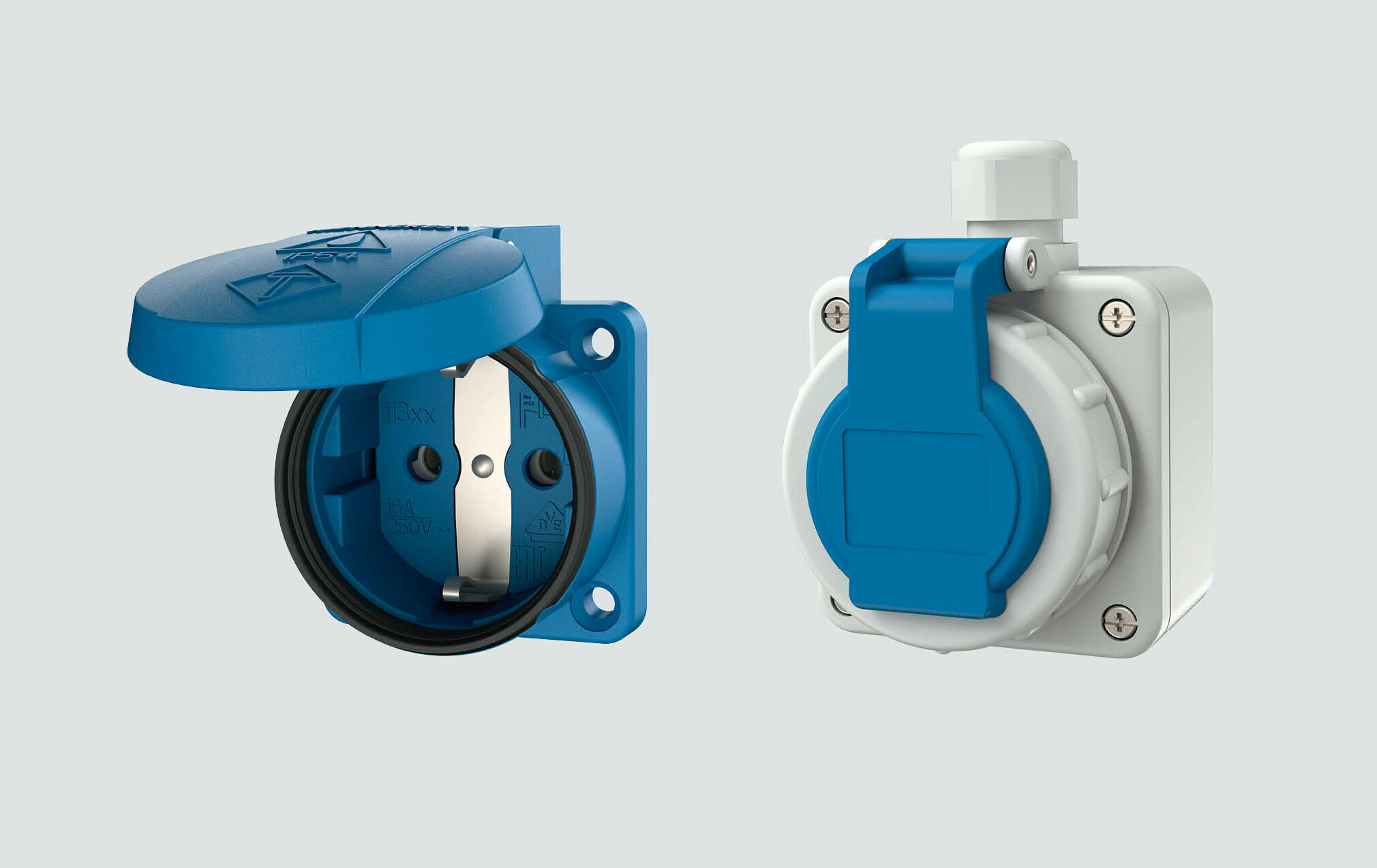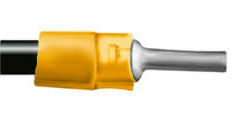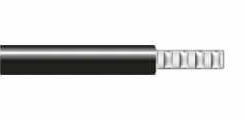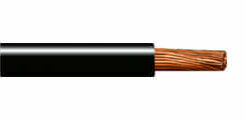SCHUKO® plugs and sockets
SCHUKO® is the abbreviation for ‘protective contact’ and refers to a plug system that is widely used in Germany and many other European countries. This system guarantees a safe and reliable connection of electrical appliances thanks to the earthing contact that gives it its name. The special feature of SCHUKO® plugs and sockets is their earthing: The contact pins of the plug are designed to connect to earth before the live contacts. This ensures maximum protection against electric shocks.
The hammer symbol

The hammer symbol on SCHUKO® socket outlets and plugs stands for ‘shockproof’ or ‘impact-resistant’. This symbol indicates that the corresponding product is particularly resistant to mechanical impact. Products with this symbol are ideal for use in harsh environments where increased stress is to be expected, such as in workshops, garages or on construction sites. Impact resistance is ensured by special materials and a reinforced construction, which makes the product more durable and safer.
Plate mounted and wall mounted sockets with a hammer symbol and flange sealing

Our SCHUKO® panel mounted socket outlets with hammer symbol are also available with flange sealing collars made of thermoplastic elastomer (TPE) for mobile devices, captive thanks to two-component technology and optionally with screw or plug-in terminals. With the hinged cover closed, these socket outlets fulfil protection class IP54 in any position. The solutions are finger and back-of-hand safe in accordance with the DIN EN/IEC 60529 standard, also available with flange dimensions 75 x 75 mm for cable ducts and flush-mounted boxes - and you can easily convert existing SCHUKO® sockets to these sockets
Difference between solid and flexible conductors
In electrical installations, a distinction is made between solid (rigid) and flexible conductors. Our SCHUKO® product solutions can be used with both flexible and solid conductors, which must be pretreated differently depending on the application. Both variants have specific areas of application and properties:
Solid conductors - Solid conductors 1.5 to 2.5 mm² cross-section

Solid conductors consist of a single wire and are generally used for permanently installed cables - e.g. in walls and ceilings. They are easier to work with and offer high mechanical stability. Due to their construction, they are less susceptible to breakage and ensure a reliable electrical connection. However, as they are hardly flexible, they are difficult to lay in tight installation spaces.
Flexible conductors - Flexible conductors 1.5 to 2.5 mm² cross-section
Flexible conductors consist of many thin individual wires that are combined into one strand. They are therefore more mobile and are used where flexibility is required - e.g. in connecting cables for appliances, in extension cables or areas with frequent movement. Their flexibility makes them ideal for use in confined spaces, but also requires special processing methods to ensure a secure connection.






